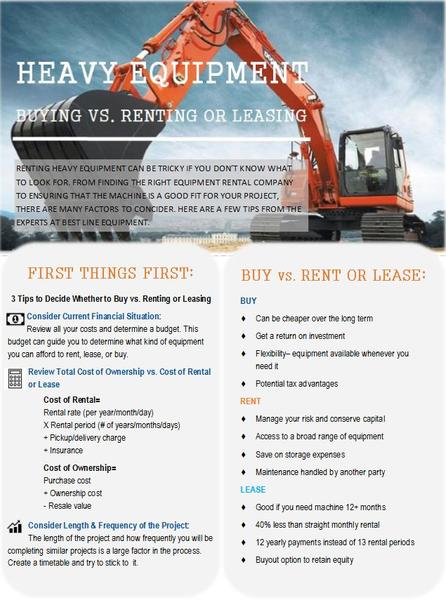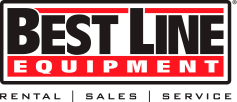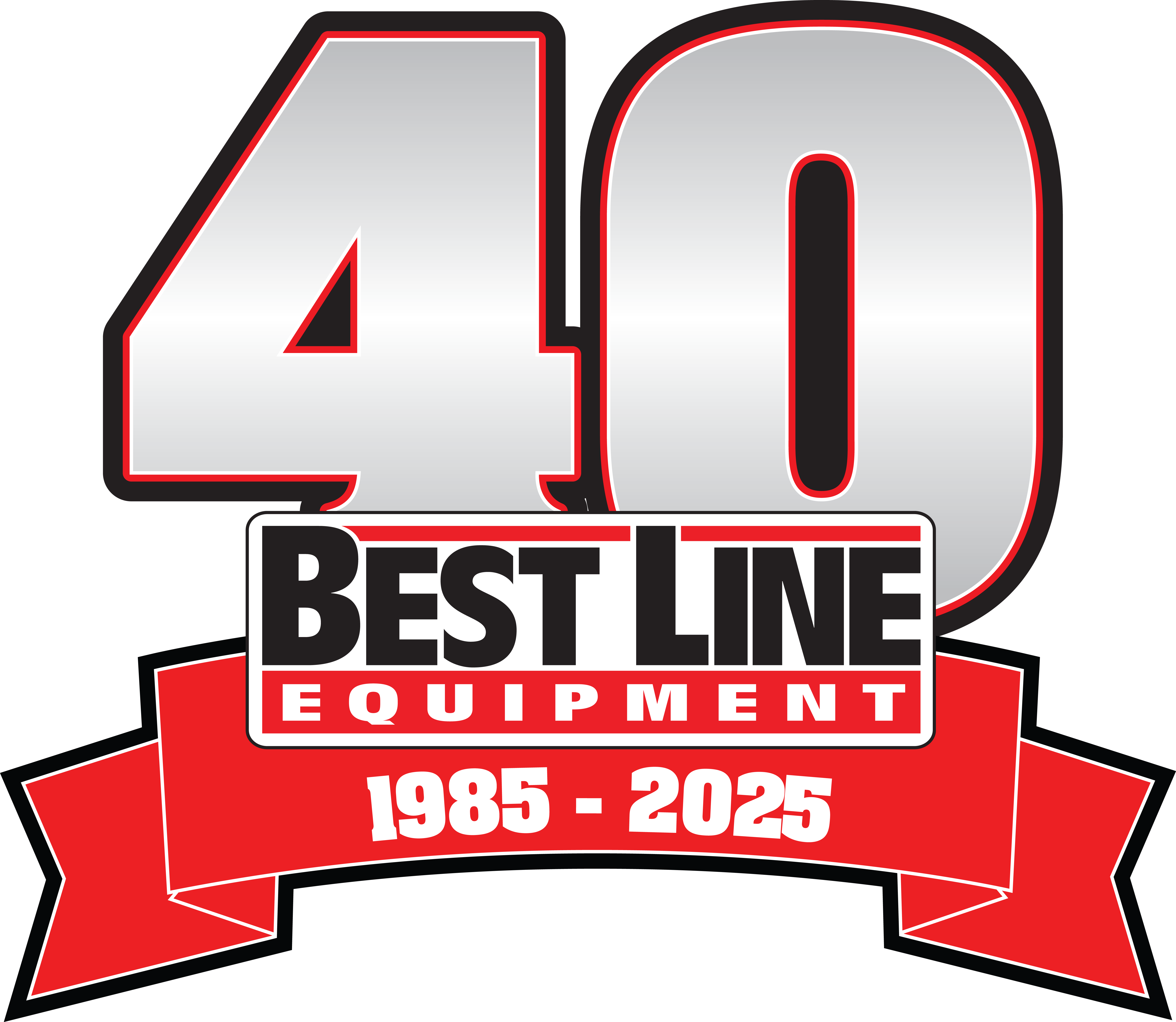Buying vs. Renting or Leasing Heavy Equipment
Jan. 5 2018
Heavy Equipment
Often, when faced with needing heavy equipment, many companies focus on analyzing the pros and cons of renting or leasing vs. buying. Though a vital step in the process of determining what equipment will best suit your specific needs and budget, there's much more to be examined in order to get the most out of your equipment.
There is no universal "right decision" when it comes to the question of renting, leasing, or buying equipment. Figuring out the best option for you means evaluating your current financial situation, considering the length and frequency of the project, and calculating the cost of a rental compared to the total cost of ownership. Ownership costs not only include the upfront price of the equipment, but costs associated with financing, maintenance and repairs, insurance, transportation, storage, and energy. It's important to take the time to estimate the costs associated with each option, as many people are often surprised to learn that the cost of owning a piece of construction equipment can be upwards of $30 an hour.
The benefits of buying include:
If a company makes the decision to rent or lease, their next decision needs to be whatequipment company they want to do business with. It's important to compare the rates of heavy equipment rentals or leases between companies, but there are several other questions to address as well that may not immediately come to mind.
For example, make sure to ask about their billing policies and if there will be any additional fees throughout the process. Many equipment rental companies will charge you extra if the equipment is not fully refueled and cleaned before it is returned. Avoid any unexpected charge by simply asking first. Also, ask detailed questions to understand the logistics of the rental or leasing operation: what is your maintenance schedule for equipment? What are your pickup and delivery times? What is your response time if the equipment isn't working?
In addition to finding the right company, you also need to find the right piece of equipment to suit your needs. Determine exactly what you're looking for-- if you find that you can complete two tasks with the same machine this will save you both time and money than if you rented two pieces of equipment for seperate tasks. Though it may sound like common sense, doing research on the functionality of a machine can be a financially beneficial step in the process of renting or leasing equipment.
Looking for a rental for your next project or job site? See our full line of rental equipment here.
The benefits of buying include:
- Cheaper over the long term
- Getting a return on your investment
- Available equipment whenever you need it
- Possible tax advantages
- Manage your risk and conserve capital
- Access to a broad range of equipment
- Save on storage expenses
- Maintenance handled by another party
If a company makes the decision to rent or lease, their next decision needs to be whatequipment company they want to do business with. It's important to compare the rates of heavy equipment rentals or leases between companies, but there are several other questions to address as well that may not immediately come to mind.
For example, make sure to ask about their billing policies and if there will be any additional fees throughout the process. Many equipment rental companies will charge you extra if the equipment is not fully refueled and cleaned before it is returned. Avoid any unexpected charge by simply asking first. Also, ask detailed questions to understand the logistics of the rental or leasing operation: what is your maintenance schedule for equipment? What are your pickup and delivery times? What is your response time if the equipment isn't working?
In addition to finding the right company, you also need to find the right piece of equipment to suit your needs. Determine exactly what you're looking for-- if you find that you can complete two tasks with the same machine this will save you both time and money than if you rented two pieces of equipment for seperate tasks. Though it may sound like common sense, doing research on the functionality of a machine can be a financially beneficial step in the process of renting or leasing equipment.
Looking for a rental for your next project or job site? See our full line of rental equipment here.

